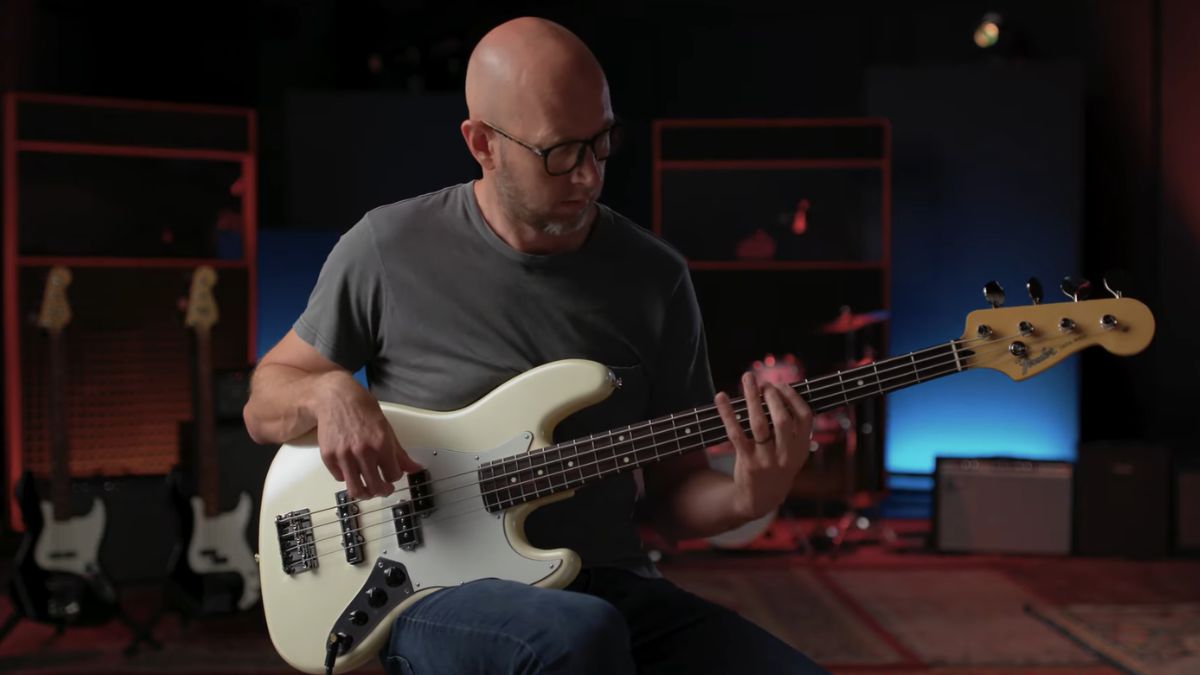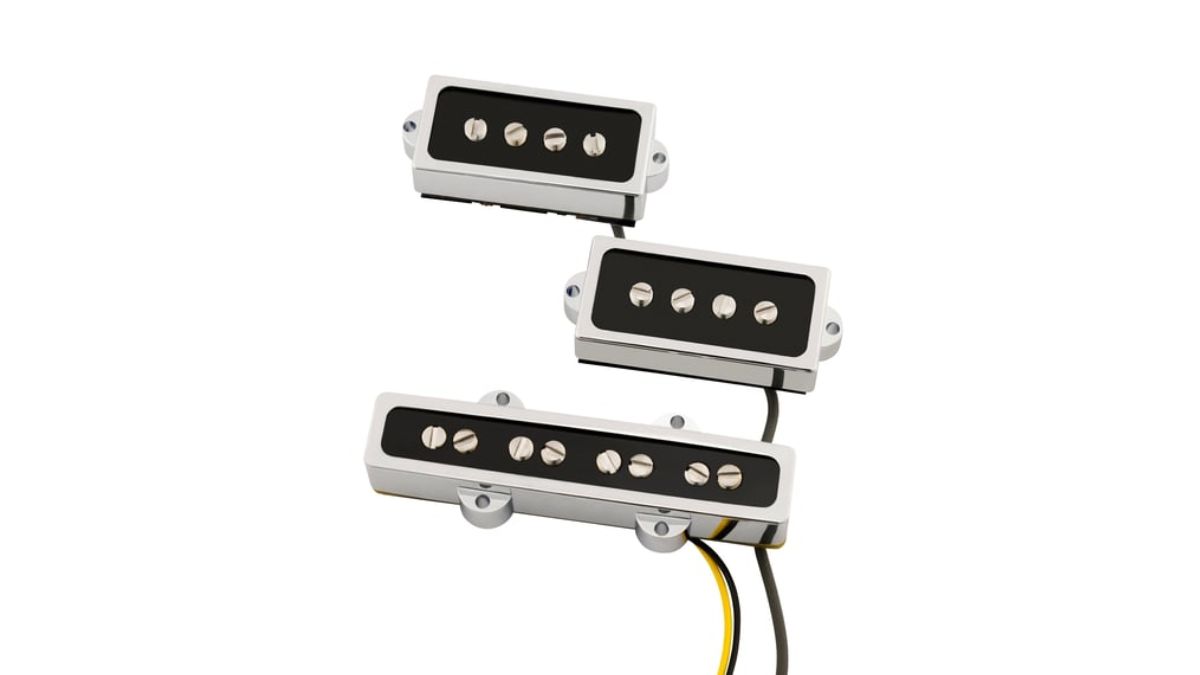“For those that want the bite of a Jazz Bass pickup but still need the fullness and solidity that a Precision has”: Fender unveils Tim Shaw-designed P/J bass pickup set
The set offers a best-of-both-worlds approach, blending a Precision Bass middle pickup with a Jazz Bass in the bridge, carefully crafted to complement one another

Fender has launched a new Chrome Cobalt P&J pickup set, uniting the sonic identities of Precision and Jazz bass guitars.
The hybrid wax-potted set comprises a split-coil Precision Bass middle pickup and a Jazz Bass bridge, resulting in what Fender believes to be “one of the most versatile tone combinations available.”
Their tonal character has been sculpted by in-house pickup guru Tim Shaw, the man behind the recently released Jason Isbell signature Tele pickup set, “allowing players to unlock the full tonal potential” of their instrument.
The pickups use Fender’s proprietary blend of a FeCrCo magnet, in place to bring “added punch, hi-fi clarity, and dynamic range,” and a Formvar magnet wire to add “bright, glassy” characteristics to the pickups' tone.
The pickups also boast adjustable pole pieces, enabling a custom output balance.
Aside from adding a distinctive chic to basses, the chrome-ringed covers double-up as a shield to eliminate 60-cycle hum, meaning they remain “remarkably quiet” even when in split-coil mode.
Cobalt chrome was used here as it's a material that can be turned into a screw, which Shaw says creates an Alnico 5-like sound, with “an attack that we really need for a bass pickup.”
All the latest guitar news, interviews, lessons, reviews, deals and more, direct to your inbox!
“Fender basses historically have a really solid attack and mid-range feel,” he continues, but adds that the cobalt chrome pickups will be better suited to modern music needs.
“A P/J combination doesn't exist in nature so to speak. It's a later adaptation for people that wanted the additional bite of a Jazz Bass pickup but still needed the fullness and solidity that a P has,” Shaw details.
“The challenge with it is to get a bridge pickup which has enough force to stand on its own to stand against the P, but also to play musically with it, and the whole thing is a balancing act I'm really proud of.”
He concludes that the set responds just as well to intricate finger playing as it does “crunchy rock” playing with a pick.
First introduced in 1951, the Precision bass has been a core part of Fender's low-end product range ever since, but few stand out as much as its 1958 model, deemed something of a “Holy Grail vintage guitar.”

That's due to its blond/ash body, maple neck, and gold anodized pickguard, with Leo Fender transitioning to the more familiar tortoiseshell [cellulose nitrate] ’guard and rosewood ’boards the following year.
While the guitar is a rarity today, they still struggled with 60-cycle hum issues, meaning this new pickup set would have been clamored over in the late '50s.
The Jazz Bass' introduction came nine years later, in 1960. It represented a more premium instrument and featured two narrow, eight-polepiece pickups instead of the one pickup found on the Precision.
The Fender Cobalt Chrome P/J Bass pickup set costs $349, and is available to order today.
Visit Fender to learn more.
A freelance writer with a penchant for music that gets weird, Phil is a regular contributor to Prog, Guitar World, and Total Guitar magazines and is especially keen on shining a light on unknown artists. Outside of the journalism realm, you can find him writing angular riffs in progressive metal band, Prognosis, in which he slings an 8-string Strandberg Boden Original, churning that low string through a variety of tunings. He's also a published author and is currently penning his debut novel which chucks fantasy, mythology and humanity into a great big melting pot.


